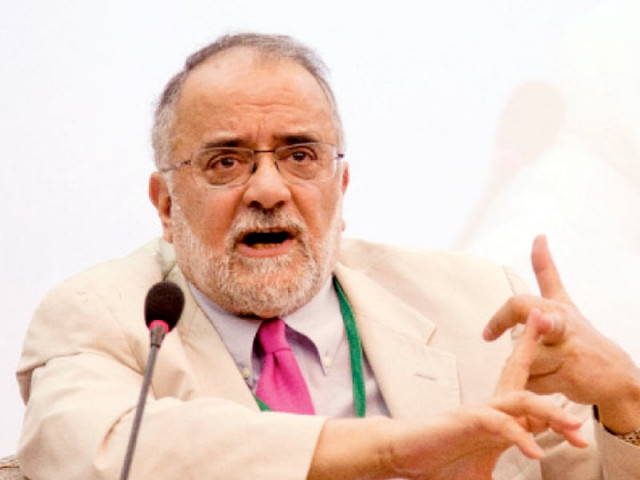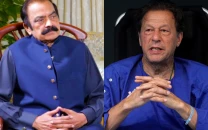‘National security’ agenda a threat to Pakistan’s survival
Military establishment’s propensity to pursue a ‘national security’ has placed the country in an economic crisis.

Ahmed Rashid
The military establishment’s propensity to pursue a ‘national security paradigm’ and influence foreign policy has placed the country in an economic crisis, damaged the social fabric and has contributed to the proliferation of religious extremism.
These were the views expressed by journalist and best-selling author Ahmed Rashid during a talk on “Pakistan on the Brink” at the Islamabad Literature Festival on Tuesday. Daily Times Editor Rashed Rahman moderated the session.
The guest speaker wasted no time in addressing arguably the most hotly debated topic in the country today -- rising extremism. He was unequivocal in apportioning blame to the state for providing sanctuary to the Taliban, who he said had been allowed to raise money and purchase weapons in addition to using seminaries as training grounds.
“This is a catastrophe waiting to happen, because we are following a policy that is self-destructing. The state has set a terrorist infrastructure in motion,” he said.
Rashid said there were around 10-12 seminaries out of 20,000 in the country where aspiring jihadists were being trained, and lamented the negligible role authorities had played in confronting the issue despite having clear knowledge of it.
On national identity, a recurring theme in his latest book “Pakistan on the Brink: The future of Pakistan, Afghanistan and the West,” the author said the country had not been able to maintain one because of growing internal strife which had led to the marginalisation and gradual cleansing of religious minorities and certain Muslim sects.
While national identities were not forged by propagating an ‘us versus them’ mentality where an enemy was made the scapegoat, this was the image, or ‘victimisation narrative’, promoted by the country’s military establishment, he added.
Rashid said the military, which has always projected itself as protectors of the state’s boundaries and ideology, had ignored the contribution citizens played in the formation of a state.
“Our citizens have never shared the concept of what constitutes a ‘national state’ since the inception of Pakistan as an independent nation,” he said.
Rashid said the formation of Bangladesh, and the rise of a separatist movement in Balochistan and now a nationalist one in Sindh were indicative of a crisis that may spiral out of control if left unattended.
Following a brief interruption in the power supply, the focus of the talk switched to Pakistan’s floundering economy.
Rashid said the root of the country’s economic problems lay in the state’s mismanagement of resources and its inability to capitalise on existing strengths.
“Between 2001 and 2011, the US gave Pakistan US$18 billion in funding, of which 80 per cent went to the military. We could have made progress if even one quarter of this was spent on education,” he said. Rashid said dwindling finances could be explained by a lack of diversification in production circles, ruing that labour was the only export that was flourishing.
He said Pakistan needed to follow in the footsteps of Greece, Portugal, and Spain, who were making conscious efforts to address their debt crises by employing austerity measures.
Moving on to foreign policy, Rashid said the onus was on the country’s next elected government to convince the international community that creating a peaceful regional environment was Pakistan’s priority.
“The government must work with the military on a common agenda, analysing issues rationally, not emotionally. Civil society, the middle class, and the media should project this agenda,” he said.
Rashid said Pakistan was not taking advantage of its geo-political position because the civilian government had relinquished control to the military establishment who was ruling the country under the guise of ‘security.’
He said there was a serious peace lobby in the Afghan Taliban who had brokered a peace deal through German negotiators a few years ago under the watchful eye of Richard Holbrooke, who was the Special Envoy for AfPak at the time.
Unfortunately, Holbrooke’s death signaled an end to any political momentum that had been gained through the deal, and Taliban hardliners have since assumed power and wreaked havoc.
Whether or not the Taliban continues its reign of terror, only time will tell.
Published in The Express Tribune, May 1st, 2013.



















COMMENTS
Comments are moderated and generally will be posted if they are on-topic and not abusive.
For more information, please see our Comments FAQ